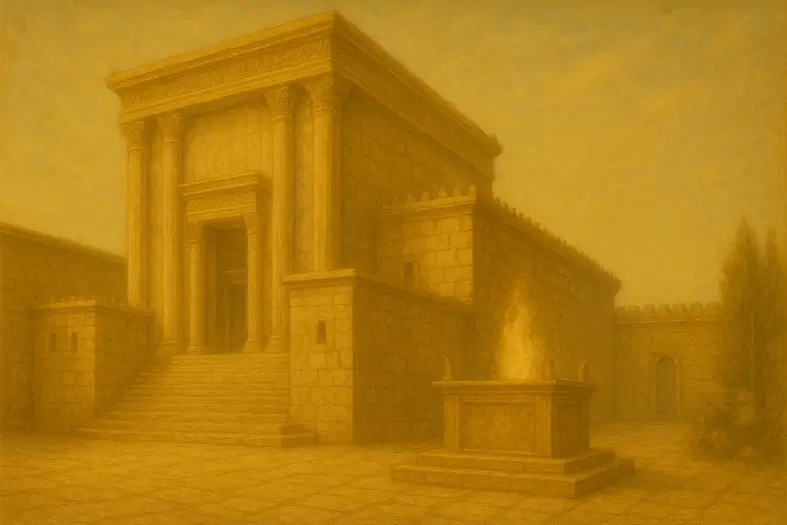


It is forbidden for a Levite to perform priestly service, or for a Kohen to take over Levite duties.
This mitzvah prohibits blurring the distinct roles of Kohanim and Levites in the Mikdash. A Levite may not approach the altar or perform priestly sacrifices, while a Kohen may not assume Levite responsibilities such as guarding, carrying, or singing. Each tribe was sanctified with a unique role, and violating these boundaries desecrates Hashem’s service.
Rambam explains that these roles were divinely designated: the Kohanim descended from Aharon to serve as officiants of the sacrifices, while the Levites were assigned as assistants and guardians. The Torah insists that one not overstep into the role of the other, ensuring order and sanctity in the Temple service.
The Sefer HaChinuch teaches that this separation instills awe and discipline, preventing confusion and preserving honor for each tribe’s duties. The Talmud teaches that if either Kohen or Levite crosses these lines, the act is punishable and treated as a grave violation.
Commentary & Classical Explanation:


Represents the concept of spiritual intentionality, purity, and sanctity—set apart for a higher purpose.
Concerns the Beit HaMikdash, korbanot (offerings), and priestly service.
Signifies awe and reverence toward Hashem—living with awareness of His greatness and presence.
Mitzvot that uphold fairness, honesty, and moral responsibility. Justice is kindness structured — ensuring that society reflects G-d’s order through truth, equity, and accountability.
Mitzvot that define and deepen the relationship between a person and their Creator. These include commandments involving belief, prayer, Shabbat, festivals, sacrifices, and personal holiness — expressions of devotion rooted in divine connection.

Dive into mitzvos, prayer, and Torah study—each section curated to help you learn, reflect, and live with intention. New insights are added regularly, creating an evolving space for spiritual growth.

Explore the 613 mitzvos and uncover the meaning behind each one. Discover practical ways to integrate them into your daily life with insights, sources, and guided reflection.

Learn the structure, depth, and spiritual intent behind Jewish prayer. Dive into morning blessings, Shema, Amidah, and more—with tools to enrich your daily connection.

Each week’s parsha offers timeless wisdom and modern relevance. Explore summaries, key themes, and mitzvah connections to deepen your understanding of the Torah cycle.